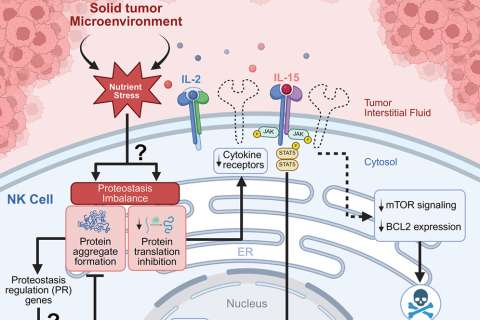UCLA Research Alert
FINDINGS
A new study led by a UCLA-VA collaborative team looking at the landscape of genomic alterations in more than 5,000 veterans with metastatic prostate cancer uncovered differences in the genomic makeup of cancer cells that were associated with race and ethnicity.
Although the team found that a similar set of cancer-related genes were altered in both non-Hispanic Black and non-Hispanic white veterans, the frequencies that these alterations were observed at varied significantly between the two groups. After adjusting for a number of individual patient-level factors, including the type of cancer tissue tested, clinical variables, and social determinants of health indices, the authors discovered that Black veterans exhibited higher rates of genomic alterations in immunotherapy targets — a finding that could translate into opportunities to offer precision-based therapy for these men.
When looking at how these alterations impact survival, consistent with previous reports, alterations in tumor suppressor genes like TP53 were associated with shorter survival in both Black and white veterans.
“One of the highlights of our analysis is the prevalence of clinically actionable alterations that are affecting a significant proportion of individuals, regardless of race,” said Dr. Luca Valle, assistant professor of radiation oncology at the David Geffen School of Medicine at UCLA and first author of the abstract. “This means we may be able to use specific medications that target vulnerabilities in tumors associated with the genomic changes we observed. Ensuring equal access to genomic tumor testing and precision medicine treatments may be a viable strategy to help close the well-described gaps in prostate cancer outcomes between Black and white men. This work really emphasizes the fact that equal access healthcare systems, such as the Veterans Affairs (VA) Healthcare System, enable precision-guided therapies, which may result in more equitable outcomes in men with advanced prostate cancer.”
BACKGROUND
Black men have a higher incidence rate of prostate cancer compared to white men and are more likely to be diagnosed at a younger age and with more aggressive forms of the disease. According to the American Cancer Society, Black men are 70% to 110% more likely to develop prostate cancer in their lifetime and twice as likely to die from the disease. Investigating the genomic landscape of prostate cancer in diverse populations may uncover valuable insights into the biological mechanisms underlying prostate cancer in different populations, improve diagnostic and treatment approaches and ultimately contribute to more equitable health outcomes.
METHOD
The researchers leveraged the large next-generation sequencing dataset from the Veterans Affairs National Precision Oncology Program to analyze affected genes and alteration frequencies identified in prostate tumors from 5015 veterans with metastatic prostate cancer who self-identified their race/ethnicity as non-Hispanic Black (1784) and non-Hispanic white (3231). The investigators used the data to evaluate the spectrum and frequency of genetic mutations associated with race/ethnicity and whether or not these mutations were linked to how long the patients lived after their cancer diagnosis.
IMPACT
This study represents an important step forward in understanding the landscape of genomic alterations in metastatic prostate cancer, which is especially important for men of African ancestry, who have historically suffered from poor representation in precision oncology studies. This study also teases out the potential impact of genomic alterations on prostate cancer survival outcomes among U.S. veterans and highlights a critical need for personalized approaches to improve prostate cancer treatment.
“Overall, this study really reinforces the importance of precision medicine initiatives for men with advanced prostate cancer,” said Valle, who is also a member of the UCLA Health Jonsson Comprehensive Cancer Center and staff physician at the Greater Los Angeles VA Healthcare System. “By integrating tumor genomic information into patient selection for metastatic prostate cancer treatments or clinical trials, healthcare providers can strive to improve treatment outcomes for all patients, irrespective of race or ethnicity.”
AUTHORS
The abstract’s co-senior authors are Dr. Kara Maxwell, who is affiliated with the Perelman School of Medicine at the University of Pennsylvania and the Corporal Michael J. Crescenz Department of Veterans Affairs Medical Center; Dr. Kosj Yamoah, who is affiliated with the H. Lee Moffitt Cancer Center and the James A. Haley Veterans’ Hospital; and Dr. Isla Garraway, professor of urology, director of research at David Geffen School of Medicine at UCLA. Other UCLA authors include Dr. Matthew Rettig and Dr. Nicholas Nickols. Garraway, Rettig and Nickols are part of the VA Greater Los Angeles Healthcare System and members of the UCLA Health Jonsson Comprehensive Cancer Center.
SESSION
Valle will present the findings (Abstract 5017) at the annual American Society of Clinical Oncology meeting on Monday, June 3 in the Genitourinary Cancer – Prostate, Testicular, and Penile Rapid Oral Abstract Session from 1:15 to 2:45pm CT.







